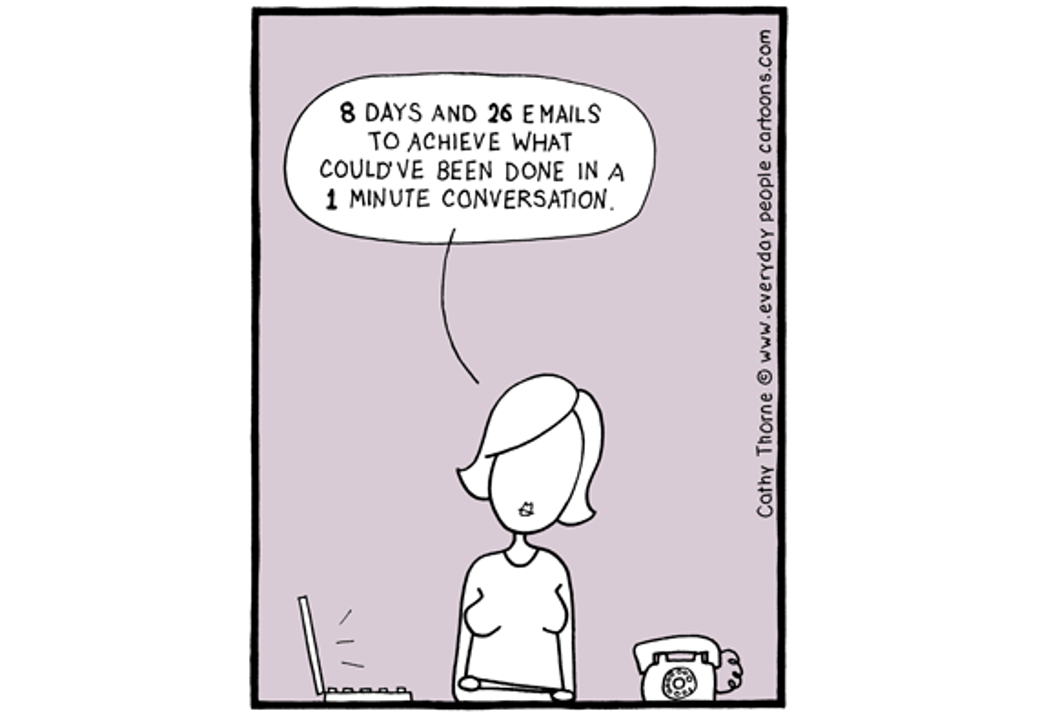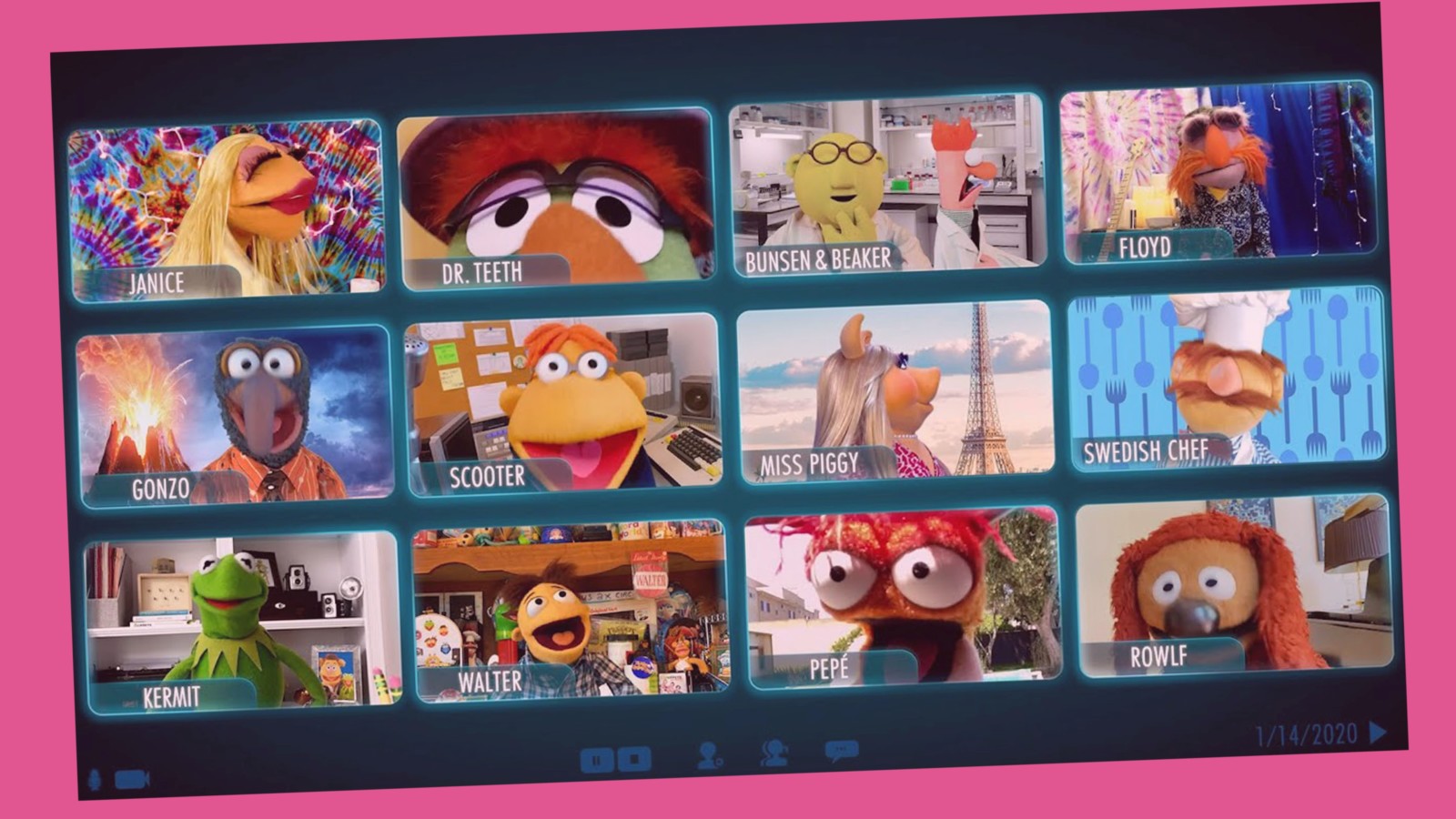There is no substitute for connecting with your team in person.
Think back to a previous team lunch out of the office and a change of environment that enabled people to connect on a more relaxed and human level.
Putting in effort and time now to maintain these relationships’ quality will yield tremendous results when we are all face to face again.
In my book, Own Your Space, I spoke about the power of mastering your interpersonal relationships.
This can no longer be perceived as a soft skill but a critical life skill.
Our people skills come down to how well we interact with our colleagues and these relationships’ strength. We already know that performance alone doesn’t count for everything.
Of course, our ability to do our jobs well is critical to our career success, but often it’s our overall image that plays a more significant role in determining how successful we will be. And central to that image is how we handle our interpersonal relationships.
Whether you are joining a new team or want to strengthen relationships in your existing team, here are 8 ways you can build your people skills remotely:
Be as interested as you are interesting.
The most exciting people in the world are the most interested — and that’s what keeps them interesting.
Have a genuine curiosity about your colleague’s and clients’ lives and ask them more than the usual work updates.
Do they have kids, what do they like to do on weekends?
You may feel awkward to engage in a non-work-related conversation, but this is the foundation of creating a rapport that lasts.
Remember, everyone has a past, a present and a future. Pick your starting point to begin a conversation.
You could ask where they worked before this current job, what is their greatest challenge now or what they look forward to once Covid is behind us.
Genuine conversations open up the door for you to add value in a meaningful way. One of my clients’ expressed her concern about being a first-time mother and how she would manage when the baby was born.
A week later, I found an article on the Harvard Business Review about working moms’ benefits on their kids. I copied the link and sent an email with one line — I thought you’d appreciate this.
It was a simple gesture but went a long way to build my relationship with her.
How can you win over someone who does not like you?
Asking for advice is a fantastic way to connect. The aim is to establish a starting point so you can build upon the conversation.
Ask what book they’d recommend, ask how they would handle a particular situation at work. Ask this colleague if they have a favourite vacation spot, or ask what kind of gift you should buy for a twelve-year-old nephew.
Once you have read the book or article they suggested, you can reach out to them with your feedback.
It is one conversation at a time that will slowly build a stable relationship.
Reaching out for advice is not about manipulation or insincerity; it is an act of humility.
The power of listening.
It happens often: we appear to be listening, but in fact, we are so distracted by other thoughts, other people, and other things we do that we’re not actively listening.
We are so focused on what we’re going to say next and how we can say it so that we sound fabulously articulate and intelligent. Or we are scheming how we can fix the problem being shared.
As a result, we don’t entirely hear what the person in front of us is saying. We’re not getting the entire message.
Listening is not a passive activity.
The way to develop stronger relationships is to give the person in front of you your most valued commodity: your undivided attention.
When you zone out mentally to solve their problem and interject with your personal experience, you have ceased listening.
The more we listen, the more people share, because ultimately, people need to be heard. To remain unheard is almost like being invisible.
When you give people respect for listening to what they have to say and value their right to express themselves, you make them feel more valuable.
Bring back the human touch.
“The most important thing in communication is to hear what isn’t being said.” — Peter Drucker
Working from home means that those random coffee chats are no longer an option.
These conversations now take the form of WhatsApp groups, emails and Zoom/Teams calls.
Of course, it’s easier to email, but where possible, pick up the phone and bring back the human touch.
Phone calls allow your colleagues to hear the genuine excitement in your voice or the hesitation of delivering disturbing news.
A five-minute phone call to clarify something will save you and everyone else valuable time, and that’s the most in-demand commodity you can offer.
Do not hide behind email either. It is a convenient escape not to interact with your team.
Of course, you need a paper trail, but you will come across far more productive, having a five-minute conversation instead of a five-day email trail.
Be aware if you are joining a new team, you may walk into an existing culture of defaulting to emails and WhatsApp’s instead of more productive communication.
Communicate as often as you need to so you can take charge of your deliverables and not fall into the digital divide trap.

Show up with the camera on.
If you want to maintain and nurture your relationships, keep your camera on for meetings. Even if you are the only person who does, I am still astounded at how many teams have “collaborative” sessions with the cameras off.
I am not talking about genuine bandwidth issues but choosing to keep the camera off for fear of judgement of being in casual clothing or trying to hide your multitasking habit.
Would you ever crawl under the boardroom table and come out at the end of the meeting? So why are you doing the same thing remotely?
Your non-verbal language accounts for 55% of how communication is interpreted.
Without the camera on, we omit much precious information. A frown’s nuance, a smile or an eyebrow raised in response to a new suggestion can be misinterpreted and lost in translation.
No one can create a connection with a photo of you, an avatar or your initials.
Showing up with the camera on is as crucial for your team as it is for your clients and suppliers. It is a gesture of transparency and shows your intention to connect.
Engaging in a conversation with the camera off is like having an in-person conversation and avoiding eye contact at all cost. It comes across as ungenuine and cold.
Take the initiative.
“The easiest thing is to react. The second easiest thing is to respond. But the hardest thing is to initiate.” Seth Godin
It’s challenging to deepen relationships with your team members in a group status meeting. Take the initiative to reach out to the various individuals and get to know them.
It doesn’t have to be a long conversation; you can request a regular twenty-minute coffee catch up with each person.
Find out what their objectives are, what matters to them, and how can you best support them.
Reach out to other departments and set up introductory meetings with them too. Create relationships beyond your division, and it will astound you at how you will stand out and the network you accumulate because of your consistent efforts.
Be punctual.
“If you’re early, you’re on time. If you’re on time, you’re late.” ― Lik Hock Yap Ivan
If you already have a guilty smile because you know you always are late, then consider this — when you show up late, even five minutes, you are signalling to that person, ‘I don’t respect your time’.
When you arrive late, irrespective of being online or face-to-face, their internal dialogue escalates to ‘How can I trust this person with my customers or my business if they cannot show up on time for a simple meeting?’
You have inadvertently sabotaged your professional presence in the space of five minutes and potentially dented the working relationship.
Be aware of this becoming a consistent pattern. If it happens regularly, your image will become associated with traits like unreliable and untrustworthy.
If this has been part of your repertoire, the good news is you can behave your way back into trust.
Often being late for meetings is part of the team culture. The narrative becomes “everyone is always 10 minutes late, so there is no point in logging in on time”.
Please don’t fall into this trap, be on time and see how you can influence the culture more productively.
Trust = credibility + consistent behaviour.
“You can’t build a reputation on what you are going to do.” — Henry Ford
The most direct way to earn your team’s trust is by consistently keeping the promises you make, irrespective if you’re in person or online.
Consistency is the thread through how you deliver your work, how you treat your colleagues and what people can expect from you when they engage with you.
Do not let familiarity make you numb to delivering consistently. You are remembered for your last piece of work, not the fact that you performed well a few weeks ago.
Consistency becomes translated into qualities such as reliable, dependable, and trustworthy. These are the building blocks for a healthy relationship.
Set your boundaries — what you tolerate becomes your reality.
“You have to be able to set boundaries; otherwise, the rest of the world is telling you who you are and what you should be doing. You can still be a nice person and set boundaries,” Oprah Winfrey
There is a fine line between wanting to prove yourself as a team player and relinquishing all boundaries on your time.
If you consistently reply to emails after hours or on weekends, you will create an impression that this is what your team can expect from you.
Of course, if something is urgent, you get on board and assist where possible but let that be the exception and not your default.
If you want to respond to emails at night because it suits you, then schedule the emails to be sent at 7 am. Working after hours should always be your choice, not an obligation.
Remember — you get what you tolerate. Set your boundaries from the outset.
Be honest — do you have a time management issue or a people-pleasing issue?
Eventually, your “always-on” work habits will build into resentment towards your team, and you’ll lose your temper on something that appears insignificant on the surface.
Final thoughts.
Putting time into building relationships should never have an expiry date.
We will return to collaborating in person, and you want your relationships to be in a powerful position.
Your ultimate aim is to build trust with the people in the organisation and beyond, irrespective of location.
Consistently practise these disciplines to own your people skills and build solid relationships:
· Have a genuine curiosity about your colleagues
· Listen with attention and intention to connect
· Bring back the human touch
· Show up with the camera on
· Take the initiative
· Be punctual
· Build trust through consistent behaviour
· Set your boundaries
It feels good to be heard; it feels even better to be understood.
And if you’re the one who can give that to the people around you, you grow your potential to create stronger, healthier, more solid relationships.
Here’s to owning your people skills.
Warm wishes
Lori


